
HER2-Positive Breast Cancer
Latest News

Latest Videos

CME Content
More News
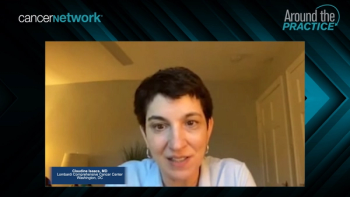
Claudine Isaacs, MD, comments on the follow-up and monitoring for a patient similar to the case presentation with HER2+ breast cancer.
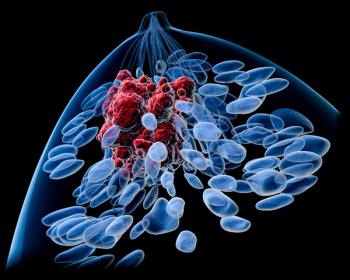
Three-year invasive disease-free survival was associated with the use of trastuzumab emtansine in patients with HER2-positive breast cancer.
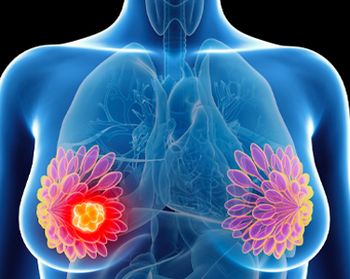
Compared with pivotal phase 3 trials, the use of pertuzumab in the frontline and T-DM1 in the second-line setting for HER2-positive metastatic breast cancer may lead to shorter survival outcomes.

Experts in breast cancer discuss the management of visceral metastases in HER2+ breast cancer, and Vijayakrishna Gadi, MD, PhD, presents the case of a 50-year-old woman with HER+/HR- breast cancer.
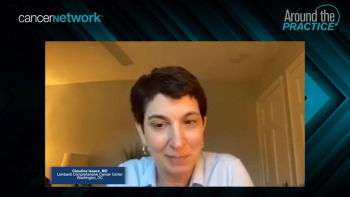
Vijayakrishna Gadi, MD, PhD; Claudine Isaacs, MD; Virginia Kaklamani, MD; and Neil Iyengar, MD, share their approach to treating patients with HER+ breast cancer who have brain metastases.

Breast cancer experts review unmet needs in the management of HER2+ metastatic breast cancer and updates from the 2021 ASCO virtual meeting.

Neil Iyengar, MD, leads the discussion on the current standard of care and the sequencing of therapy for HER2+ metastatic breast cancer.

Cynthia Ma, MD, PhD, explains key efficacy findings regarding HER-targeted therapy to treat patients with HER2-mutant breast cancer.

Treatment with trastuzumab, pertuzumab, and docetaxel appears to yield similar efficacy to trastuzumab emtansine in patients with ErbB2-positive breast cancer.

An expert in treating breast cancer discusses potential therapy options for patients with HER2-mutant.
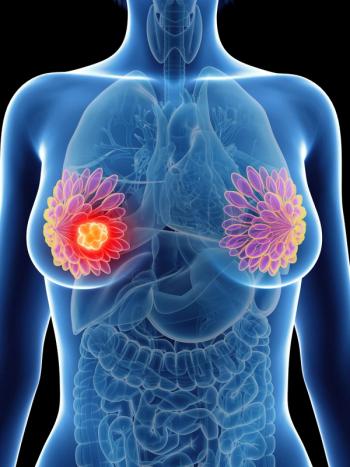
A dose-escalation schedule for neratinib may help some patients with HER2-positive breast cancer better manage severe diarrhea resulting from treatment.

Data from the phase 3 TULIP trial showed that [vic-]trastuzumab duocarmazine yielded positive progression-free survival for patients with pretreated HER2-positive metastatic breast cancer.

18FDG-PET was successful in identifying patients with HER2-positive early-stage breast cancer who were more likely to benefit from chemotherapy-free treatment with trastuzumab and pertuzumab.

Some improvement in pathological complete response may be possible with SD-101 plus pembrolizumab and paclitaxel in certain patients with HER2-negative breast cancer, but results are still uncertain.
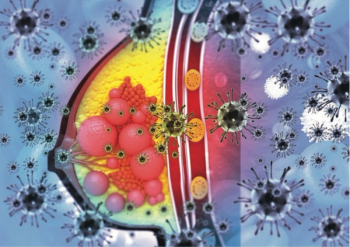
With a de-escalation strategy for administration of trastuzumab and pertuzumab in the neoadjuvant setting, patients with HER2-positive, hormone receptor–negative breast cancer experienced high rates of response and survival.

A 3-year follow-up analysis of event-free and overall survival revealed similar results for patients with stage II or III ERBB2-positive breast cancer treated with either neoadjuvant anthracycline and nonanthracycline treatment regimens.

Experts provide insights on clinical decision-making in the setting of patient with HER2+ breast cancer.

Key opinion leaders explore the appropriateness of prophylactic therapy for brain metastases and share their thoughts on best practices.

An expert panel of breast oncologists discusses factors they consider when deciding whether to screen a patient with HER2+ breast cancer for brain metastases.

Adam Brufsky, MD, PhD, presents the case of a 37-year-old woman with HER2+/HR- metastatic breast cancer and polls the audience about screening for brain metastases.

Anti-HER2 blockade without chemotherapy in the treatment of HER2-positive early breast cancer may be possible in patients with certain RNA expression signatures.
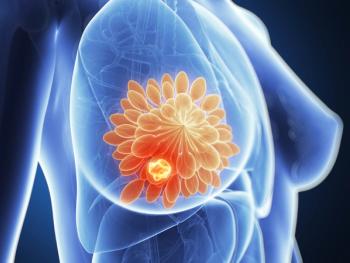
The KATHERINE trial found a clinical benefit without increasing the risk of CNS recurrence for patients with HER2-positive early breast cancer treated with T-DM1.

Even though the trastuzumab/radiotherapy failed to meet the trial-specified reduction threshold, a modest, statistically nonsignificant reduction in ipsilateral breast cancer rates were observed.

Experts discusses the treatment of patients with HER2-positive breast cancer in a virtual CancerNetwork® Around the Practice presentation,“Relapsed/Refractory HER2+ Metastatic Breast Cancer,” held January 21, 2021, and moderated by Adam M. Brufsky, MD, PhD.

In a retrospective review published in NPJ Breast Cancer, data indicate that omitting radiation therapy results in decreased overall survival in patients with stage I HER2-positive breast cancer.







































